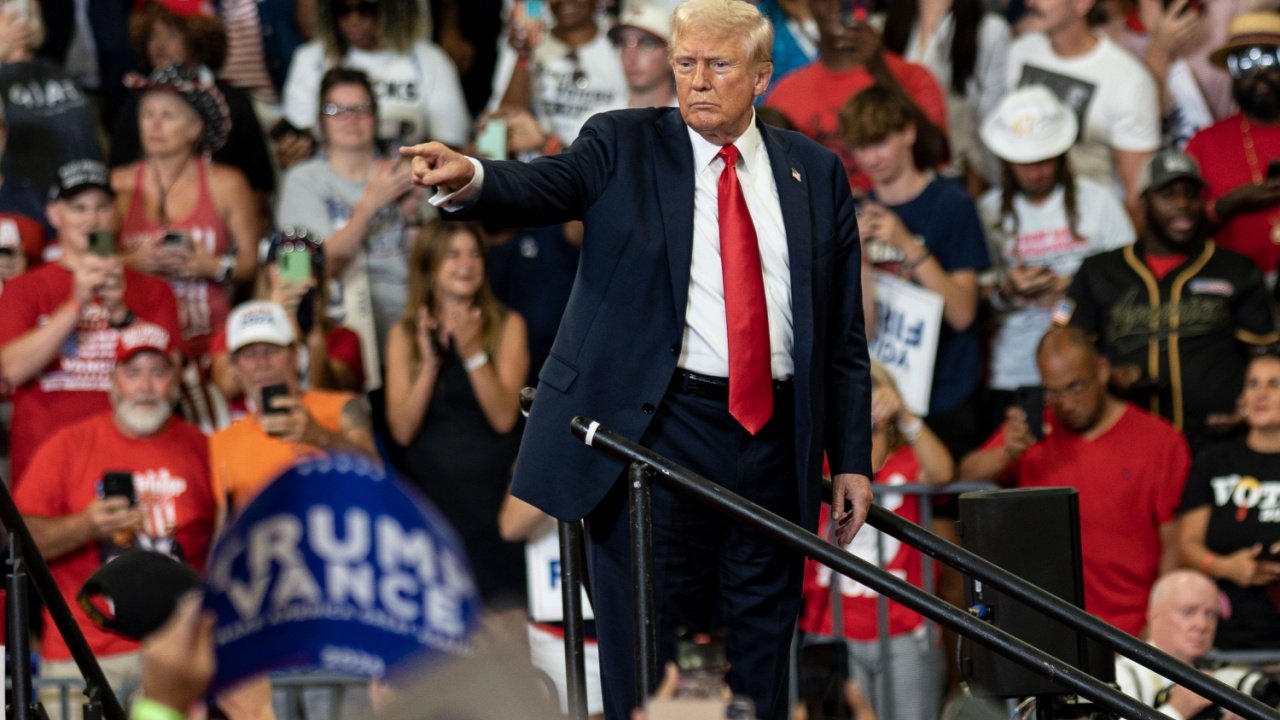There can be no gainsaying that the attempted assassination—the second in the past nine weeks—of Donald Trump does not merely represent an attempt to eliminate a presidential candidate but something even more sweeping. The act was an attack on the very ideals that have animated the United States since its founding—liberty, justice, and freedom for all.
What makes this assault even more heinous is that it arrives at a moment when America is assailed from within and without. In attempting to derail the presidential election, the alleged shooter, Ryan Wesley Routh, sought to upend democracy itself. Had he succeeded, the divisions assailing America would have only intensified, resulting in a fresh spasm of violence and upheaval.
The cold, hard truth is that America is struggling to contain political polarization. How do we ensure security and prosperity? How do we preserve the American ideals that have been threatened many times before? How do we overcome the divisions fostered by an increasingly fractious social media? As Abraham Lincoln once warned, “A house divided against itself cannot stand.”
Nothing less than American national cohesion is at risk. Add in economic inequality and longstanding racial tensions, and you have a recipe for what the novelist Wyndham Lewis once aptly called a “moronic inferno.” The problems are wide-ranging. The wealth gap, far from diminishing, has continued to grow. Federal Reserve statistics indicate that the top 1 percent of the population nearly controls more wealth than the entire middle class. Then, there are the stagnant wages and rising living costs that have led to mounting resentment. This imbalance has led to calls for toppling the establishment parties and resorting to populist measures that may stoke unrest abroad, like tariffs and other punitive measures.
Nor is this all. Beyond its borders, the United States faces a panoply of authoritarian powers. China may be experiencing internal economic difficulties, not to mention environmental challenges, but it is steadily positioning itself as America’s premier geopolitical rival. Consider the Belt and Road Initiative. China’s bullying of the Philippines could well lead to a superpower clash. Moreover, its warm relations with authoritarian regimes, including Iran, which is supplying it with oil, are cause for concern.
Then there is Russia. Despite its stout public denials, the Kremlin continues to target Washington with a variety of measures, including disinformation, cyber warfare, and proxy conflicts. It has been unstinting in its support of authoritarian regimes in Syria and Venezuela—a constituent part of a wider goal to weaken and subvert Western democracies as far as possible. Russian meddling in the 2024 presidential American election, according to the State Department, remains an acute problem.
At the same time, the threat posed by Iran and North Korea has hardly diminished—quite the contrary. Iran’s outsized nuclear ambitions and its backing of militant groups in Yemen, Lebanon, and elsewhere represent a direct threat to American interests. Indeed, the conflict in Yemen, where Houthi rebels are targeting Western ships and directly attacking Israel with missiles, underscores the gravity of the threat posed by Tehran, which has not slackened in its drive to become a regional hegemon.
America should confront these threats with strength, resilience, and a renewed sense of purpose—one where polarization and division have no place. If anything, this is a moment to embrace shared values: freedom, democracy, and justice, all of which transcend mundane political affiliations.
This is why political violence and assassination attempts are antithetical to America’s fundamental ideals. America’s path forward requires not a plunge into division but a staunch commitment to the ideals that have allowed it to serve for over a century as a beacon of hope around the globe.
Unity is not just a slogan; it represents the only way that America can counter the multifarious threats of authoritarian regimes. Put otherwise, in the twenty-first century, America must draw on its power and ideals to overcome its old divisions and meet new challenges.
Those immense challenges demand not just strength but an unwavering commitment to the values that have guided America through its darkest hours—and propelled it toward a brighter future.
Ahmed Charai is the Publisher of the Jerusalem Strategic Tribune and serves on the boards of directors of the Atlantic Council, the International Crisis Group, the Center for Strategic and International Studies, the Foreign Policy Research Institute, and the Center for the National Interest.
Image: Phil Mistry / Shutterstock.com.
